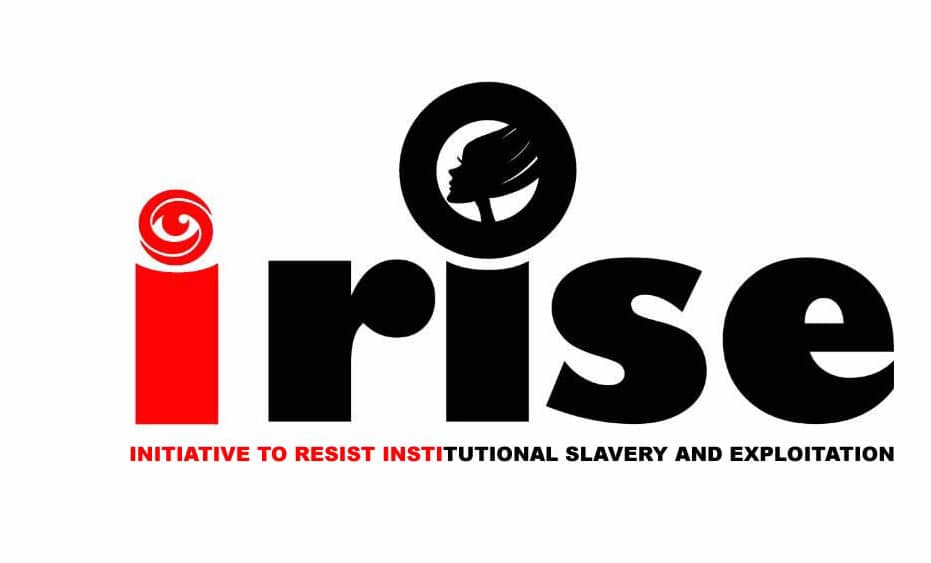From Cyriacus Nnaji, Lagos
IRISE, an Initiative to resist institutional slavery and exploitation has partnered with Global Fund for Women, One Billion Rising Nigeria and Marie Stoppes Nigeria, to create lasting gains for sexual reproductive health in Nigeria.
The partnership among other contents include a three-day webinar which was predominantly designed for adolescents, teenagers and women. It commenced on Thursday, 25th August and ended on Saturday, 27th August 2022.
Speakers include the Social Behaviour & Communication Change officer, Marie stopes International Nigeria, Lagos/Ogun,Martins Bamiteko Ojo, Marie Stoppes Nigeria is a leading network of caring professionals delivering sexual and reproductive health services. And the Coordinator, One Billion Rising Sierra Leone, Isata Mohoi, One Billion Rising is the biggest international mass movement to end rape and exploitation of women and girls.
According to Omodele Ibitoye Ejeh, a Counseling teacher with over 20 years of international counseling experience, the Executive director, IRISE, and Coordinator, One Billion Rising, Nigeria. She said “In the midst of the pandemic, global economic hardships and climate crisis SRHR shouldn’t be neglected. The need for Government to prioritize the Sexual, Reproductive Health and Rights of women and girls is of utmost importance, these include different levels of Government (local and national) partnering with communities and NGO’s to initiate women and girls centered programs in their communities, taking into consideration age, culture and language barriers, to liberate girls and women from marginalization as regards easy access and comprehension of SRHR education and services without hitches.
Speaking further she said target beneficiaries of IRISE’ program which has the theme “Make We Talk” are girls and women, especially marginalized persons, women and girls living in low income communities and villages
She added that it is important that young people are informed about their sexual reproductive health and rights before they become sexually active and when they are sexually active to enable them make important decision around abstinence, safe sex reproductive health and hygiene, adding that most parents and adults around young people fail to educate them, or are themselves unaware of the importance of Comprehensive Sexuality education. “Comprehensive Sexuality Education (CSE) empowers young people on accurate information and life skills that are important to promote wellbeing, critical thinking, and communication.”
Quoting Michel Sidibe, Executive Director, UNAID, Omodele said “Preparing children and young people for the transition to adulthood has always been one of humanity’s great challenges, with human sexuality and relationship at its core. Today, in a world with AIDS, how we meet this challenge is our most important opportunity in breaking the trajectory of the epidemic.”
She added that CSE will help young people make informed choices about their Sexual, Reproductive Health and Rights. It will indeed be helpful when society honestly acknowledges the fact that young people will be sexually active in their future, thereby making available information to empower and enable them plan ahead to make the healthiest possible sexual decisions. ‘It equips young people with the attitude, skills and knowledge needed to avoid unintended pregnancies, sexually transmitted diseases, HIV/AIDS, clandestine/unsafe abortion which may lead to injuries, disability and death. And also lower the rate of domestic and sexual violence, thus contributing to a healthier society physically and mentally,” she said.
Omodele said young people will make reproductive health decisions based on their knowledge. However access to CSE or SRHR can be inhibited by negative cultures, beliefs and myths, and the negative consequences of lack of valid Sexual, reproductive health education and services cannot be underestimated or underated, it is therefore necessary for Government, organizations and communities to work together to mitigate hazardous effect and cost.
She disclosed that these programs are motivated by the need to mitigate health hazards and to support women and girls with access to safe and valid information to enable them take charge of their lives, reproductive health and rights, empower them go bravely into the future and live healthier, happier lives. It is also designed to end gender based violence/domestic violence, promote education, awareness; provide access to counseling and healing through storytelling, listening circles and support groups, to end gender disparity in local and national levels. It is also to reduce stigma and discrimination against women and girls for their rights to bodily autonomy
Increased advocacy for equal leadership opportunities for women and Girls is intended to be achieved. “When Women and girls have right to choice, they become empowered and independent. They experience freedom like men and boys, they live up to their full potential. To achieve the Sustainable Development Goals (SDGs), to eliminate poverty, enforce gender equality, reduce inequality, guarantee peace, justice and strong institution, all hands must be on deck to make sure no girl or woman is left behind. (SDG 1,5,10, 16).
There were breakout sessions where the mainly adolescent participants were made to interact and discuss the essence, the opinions and the way forward on issues of reproductive health.
Chigozie said he has learnt a lot, he said he never knew men could have cancer..
For Aaliyah who is the Young people coordinator of IRISE, she said “I learnt about sexually transmitted diseases, hygiene, and Reproductive health generally.” She also assured that she would not use the knowledge she gained in the webinar in a negative way, since they were taught the disadvantages inherent in early sex.
David said “We learnt the disadvantage of having sex as teenagers, we are not expected to have sex until we have become responsible adults who are ready to make babies. I learnt about how we can stay away from sex, I learnt what reproductive health means and to support girls, especially when they are pregnant and not stigmatize them
Speaking on the government interventions on issue of rape, Hadassah, one of the participants, bemoaned government unresponsive and inability to abate the issue of forced sex. She said, “I don’t think the government is doing enough because there is still the preponderance of rape cases, so it means there is no proper laws and implementations against rape.”



